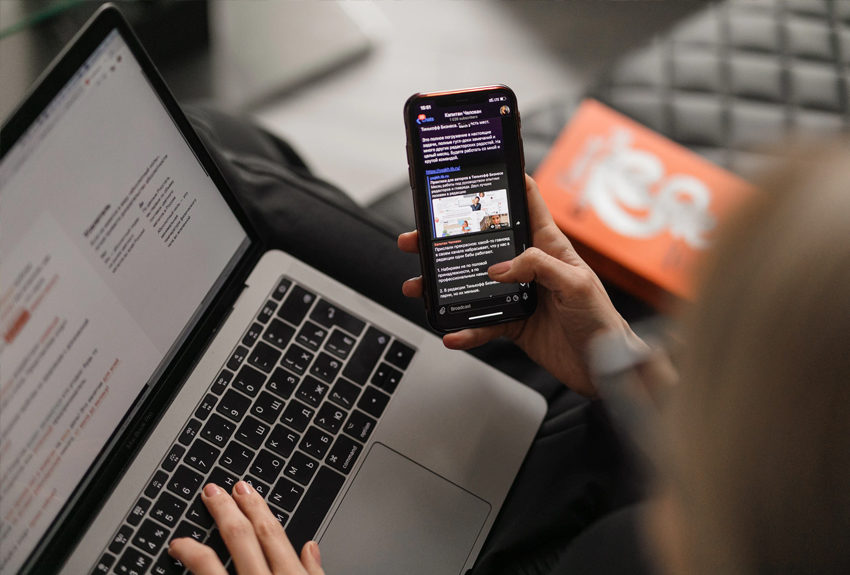Laptops, smartphones and tablets can go with us anywhere, which may make it hard to set boundaries between “work” and “play.” After you’ve finished work for the day, you may feel like checking e-mails, texts or voicemails to get ahead on upcoming tasks. Especially now, where the pandemic has forced many of us to work remotely, these boundaries may be even more difficult to set as work and play are scattered intermittently throughout the day. And, once you get into a habit of not setting these boundaries, it can be hard to stop, potentially feeling compelled to work hard and long hours, otherwise known as workaholism.
Of course, there are reasons why your work/life balance may be out of whack. You may feel pressure from an industry or company culture that stresses working long hours as being part of the job or a means of showing employer loyalty. You may have problems delegating tasks to others, and fearing that things will go haywire without you doing them. You may simply be concerned about returning to a full inbox.
Regardless of the reason, however, working too much can cause burnout, loss of motivation, or even feelings of losing control of your life, setting the stage for stress and unhappiness. Health experts generally advise that everyone needs rest to perform better. According to the Mayo Clinic, the consequences of an improper work/life balance include:
- Tiredness – When you’re fatigued, your productivity and ability to think clearly can lag, affecting your work performance and, ultimately, your reputation.
- Poor mental and physical health – Stress can affect your mental health, and worsen medical conditions or increase the risk of substance misuse.
- Harmed relationships – If your life is all work and no play, you may miss spending time with friends and loved ones, which can affect your emotional well-being, as well as the well-being of family members.
Fortunately, there are some simple things you can do to set work/life boundaries:
1. Schedule device-free time. Turn off your devices at a certain time so that you’ll stop routinely checking for updates. To get in the habit of doing so, limit your time checking e-mails, voicemails or other correspondence to one hour after work or for urgent messages only. Let your co-workers know that you won’t be available after that. Don’t keep your mobile devices by your bed. When on vacation, leave your phone and laptop in your hotel room or, better yet, leave them at home.
2. Plan ahead. If you go away, even for a day or two, set your e-mail autoresponder or voicemail message ahead of time, noting when you’ll leave and when you’ll return. You should include contact information for the people you’ve asked to cover for you in your absence—and, yes, you should always get someone to cover for you when you’re out. Doing so reduces concerns about missing important messages. Turn off “push notifications” when you don’t want to be contacted. Set your phone for silent mode during certain time-frames. Put work-related apps, such as Gmail, Slack, and Google Calendar into their own group or folder so they won’t be easily accessible on your screen. List things to do before your vacation to set your mind at ease about what needs to be done when you return. For those covering for you, also define just what an emergency is to reduce the need to be reached. Most importantly, discipline yourself and keep your word to not check messages.
3. Find alternate ‘play’ activities – We obviously don’t use our devices just for work, but if we always rely on them for ‘play,’ work remains right there in front of us and it’s tempting to switch over ‘just for a moment.’ Your commitment to taking a work break might benefit from finding activities non-device related. However, taking away devices, especially if we’ve grown somewhat dependent on them, can create a void—an almost panicky feeling of, ‘well, what do I do now?’ Plan for this. While you’re away from your desk and your devices, decide what you want to do in your free time to live your life to the fullest, without distractions. Try some activities that give your mind a rest too, such as focusing on life around you through mindfulness; listen to your breathing, take the time to simply observe what’s going on around you, like the sound of waves while you’re at a beach, or the sight of birds flitting about a mountainside.
See how long you can go without reaching for that mobile device.
Adapting to a new routine takes time. With practice, you can stop the urge to let work creep into other parts of your life. If you’ve already tried taking some of these steps and still have problems relaxing, or if you are feeling compulsive about your need to work all of the time, we are here to help. Contact us.


 Previous Post
Previous Post


